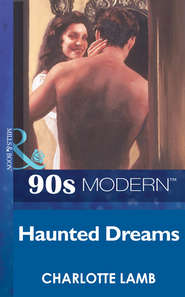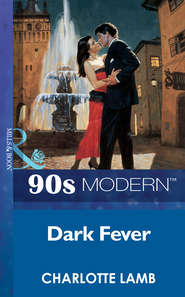По всем вопросам обращайтесь на: info@litportal.ru
(©) 2003-2025.
✖
Wild Hunger
Автор
Год написания книги
2018
Настройки чтения
Размер шрифта
Высота строк
Поля
There was no reply, just an echoing silence, but he was beginning to have a weird feeling, a gut instinct that there really was something wrong. His instincts had been honed by his job. Constantly being around sudden death made you quicker to pick up on danger.
It didn’t always work, of course. Sometimes you got caught out. The villagers he had been with that last night before he was shot were now either dead or homeless. It had been a pretty, white-walled, redroofed little village with apple blossom on the trees in the gardens when he’d first arrived there. He had been enchanted by it, had thought of it as an oasis of peace in the midst of turmoil.
Perhaps the very arrival of him and his camera team had drawn the enemy’s attention to the village. They had only been there a short time before the first shells had hit. Within days it was just a mass of smoking rubble, a hole in the ground, and there had been nothing he could do to stop the destruction, to help the people, except to tell the world what was happening to them, and to do that he had had to risk his own life, and that of his team, by staying with them.
The others had survived intact—the cameraman, the sound man, the young director with them on his first war coverage. Only Gerard had been wounded. He had been got out finally by some British soldiers serving there with the United Nations force, flown back to London by his newspaper, given the best possible treatment. His head wound was healing well. It had been a scalp injury, nothing serious; a bullet had ploughed a path across his head, a bloody parting in his hair. The wound in his leg had left him with a limp, most noticable when he was tired. He had been assured that it would gradually pass off altogether. The injuries to his mind were longer-lasting and made him sensitive to atmosphere.
He was sure he wasn’t imagining the sense of disaster he was getting now.
‘Keira! Open the door or I’m coming in!’ he shouted. The builders who had converted this small cottage had used pretty flimsy materials; he was sure he could kick this door in without trouble.
But he hesitated—maybe he shouldn’t risk a physical assault on the door in his present condition? His leg wasn’t yet fully recovered. He wouldn’t want to undo the work of his doctors.
He could try a little light burglary, though. He had once interviewed a professional criminal who had cheerfully demonstrated his own skill at opening hotel doors with a credit card. Gerard had never yet got around to testing what he had learnt. Now was his chance to do so.
He got out his credit-card wallet, extracted a card; a photograph fell out and he picked it up, frowning down at the image of himself in diving equipment against a background of blue sea and sky. It had been taken on his first visit to the country which, unknown to him, was about to be dragged down into civil war. He had spent several holidays there before the conflict began. Gerard had loved the place, gone diving, lazed in the sun, visited the beauty spots, admired the archaeological sites, drunk the local wine, eaten peasant food, strongly flavoured garlic sausages, fish caught on the day you ate it. He had made friends with local people, picked up something of the language, as he always did wherever he went. He had felt no warning of what was to come so soon afterwards.
It had been a painful shock to go back and find the countryside he remembered as peaceful and sundrenched being torn apart by civil war, the worst of all wars. He had felt so helpless, so useless, faced with such terrible suffering. He couldn’t get over what he had seen; he had had nightmares ever since he got back—had woken up screaming in the hospital ward, fought with his nurses, been half crazy with rage and horror.
That was why he was still on sick leave, although he had been pestering the news editor to put him back in the game. He had been ordered to rest and recover mentally before they sent him abroad again.
They thought he was off his trolley, of course. Damn them! Didn’t they realise he needed to bury those memories under a heap of others? He needed to be busy, to have things to do to stop himself remembering.
Impatiently Gerard pushed the photo back into his wallet and turned his attention to the front door; he slid his credit card slowly and carefully into position. He heard a click and gently pushed; the door magically slid open.
‘Well, well, aren’t you clever?’ he said to himself, grinning, before he looked around.
The cottage was an exact replica of his own in terms of structure. The front door opened out into a tiny passage at the base of the stairs. Ahead of him he saw a kitchen, to his right the open door of the sitting-room.
‘Keira!’ he called, walking towards the kitchen door. Then he stopped, shaken by what he saw. It had been expensively furnished in high-tech style with every modern gadget and piece of equipment—but at the moment it looked as if it had been raided by vandals. The fridge door hung open, food spilled out on the floor next to it; there was partly eaten food on the table, on the tops of the cabinets, everywhere.
Otherwise, though, the room was empty. The girl must be upstairs. What sort of state was she in? He began to run, taking the stairs two at a time.
She wasn’t in either of the small bedrooms; both were feminine, delicately furnished, immaculate. The excessive neatness of the rooms compared to the disarray in the kitchen sent a shiver down his spine.
The bathroom door was shut. He tentatively turned the handle; the door wasn’t locked, but he didn’t like to walk in—first he tapped on it, called her name again.
‘Keira? This is your next-door neighbour, Gerard Findlay. Are you OK? Your friend Sara is worried about you. Open the door, Keira.’
There was a faint movement inside, then a low, smothered groan. It was enough to make Gerard forget social conventions. He burst into the room, flinched in shock at what he saw. She lay on the floor just inside the door, curled in a foetal position. As he stopped beside her she lifted her head as if it was heavy, turned her wet-lashed green eyes towards him, made a sound, like a terrified kitten.
‘Go away!’
She swallowed visibly; he could see that the convulsive movement hurt, saw her wince. No doubt her throat was raw. She must have been throwing up for a long time. She was as white as paper and her mouth was puffy and looked bruised.
Gerard was essentially a very practical man; his common sense took over.
‘Have you stopped vomiting?’ he quietly asked.
She closed her eyes, sobbed, put a hand to her mouth to stifle the sound, turning her head away from him as if to shut out the sight of him.
‘Go away!’ she gasped. ‘Please…just leave me alone.’
He took no notice. Bending, he lifted her bodily, putting one hand under her knees, another under her back. It was no problem to him—he was a very strong man; his muscles took her weight easily. She was as light as a feather anyway; she seemed to have no bones; he almost believed that if he dropped her she wouldn’t fall, she would float.
‘No,’ she wailed, but he ignored the protest, carrying her through into the bedroom. He lowered her gently on to the bed, sat her on the edge of it, still holding her with one hand while he pulled her thin blue silky tunic dress up over her head with the other.
She tried to fight him off, to stop him. ‘What are you doing?’ she gasped in panic.
He got the dress off, however, and threw it into a corner of the room. Under it she was wearing a one-piece garment, white silk, the top of it held up by fine thin straps over her bare shoulders, the deep white lace frothing over her breasts, matching lace ending at the pale thighs.
‘Bastard,’ she spat out, the green eyes flashing as she saw him looking down at her body curiously. ‘Get your hands off me. I’m not in such a bad way that I can’t stop you raping me.’ Her fingers curled into claws; she had long, pale, pearl-vanished nails which looked lethal. ‘I’ll have your eyes out if you try it!’
‘You must be joking!’ snapped Gerard, suddenly angry with her for what she was doing to herself. ‘You don’t think any man could find you sexy, looking like this?’
Her green eyes widened; she gave him a stricken look.
He grimaced, wishing he hadn’t said that. More gently, he told her, ‘I took your dress off because I thought you’d feel better in something clean.’
She took that on board and flinched as she realised what he meant. ‘Oh, God,’ she groaned, covering her face with her hands. ‘What do I look like? Don’t look at me. Go away; please go away.’
He laid her down on the bed and went over to the wall-to-wall fitted wardrobe. He pulled out a warm blue wool dressing-gown and brought it back to her.
She was lying on the bed with closed eyes, curled into the foetal position again as if wishing to retreat back into a time before birth, back to the safety of the womb. The wild red hair spilled over the pillow; her skin was like buttermilk; the small breasts with their dark pink nipples had the budlike look of a very young girl’s. Her bra was clearly padded. But those legs…His eyes followed the graceful length of them down to those thin, highinstepped feet. She was far too thin, but she was hauntingly lovely. A faery child, he thought; not quite of this world.
How old was she? he wondered, guessing her to be not much past twenty. Maybe twenty-one or two? A good ten years younger than himself.
‘You’d better put this on,’ he told her, and her eyes snapped open. She sat up and he held the dressing-gown for her while she weakly pushed her arms into it; Gerard knelt down to tie the wide blue belt around her tiny waist. She was so fragile it made him almost afraid to touch her, and he grew angry again.
‘How can you do such stupid things to yourself?’ he asked her, looking up into her face. ‘You don’t need to diet, you have a beautiful body; why are you trying to destroy it for the sake of vanity?’
‘Vanity?’ She laughed with a rising edge that made him frown. He didn’t think he could cope with female hysteria. ‘You think I like myself?’ she asked him wildly. ‘Don’t tell me I have a beautiful body; I know how fat I am. I have eyes; I can see myself in a mirror.’
He looked his amazement, his eyes widening and his jaw dropping. ‘Fat? You aren’t fat! You can’t honestly believe that. If anything, you’re too skinny.’
‘Don’t lie to me! Oh, I know you mean well, but there’s no point in pretending. I’m not a fool.’
‘You may not be a fool but you’re definitely crazy,’ said Gerard grimly. ‘I’m going to ring your doctor, get you some help.’
‘No!’ She gripped his arm with fingers that dug into him. ‘I won’t see him!’ Her voice was hoarse but insistent.
Gerard had no idea what to do in this situation; he didn’t really know what he was dealing with. Sara Ounissi had been so urgent, so scared. And his first reaction when he’d seen Keira had been one of shock and dismay. Yet now he wasn’t sure how serious this was—she was very pale, admittedly, and everything she said disturbed him, yet he didn’t get the feeling that this was a silly girl, a butterfly with nothing much in her head. Her green eyes were far too intelligent, her mouth full and warm, yet determined.
He had better wait for Sara to get back; she would know what to do.
As if picking up his thoughts and echoing them, Keira moistened her bruised mouth with the tip of her tongue and said huskily, ‘You said…Sara was here? Where…?’
‘She went to get a key from the agent; I can’t think what’s taking her so long. Would you like a glass of water? Or is there any medication you take?’











